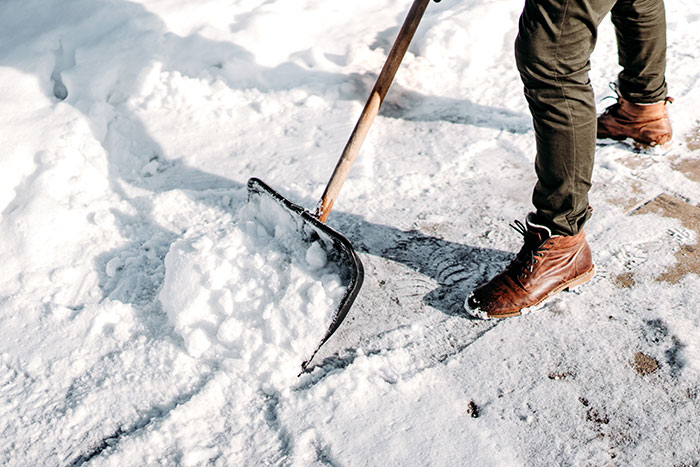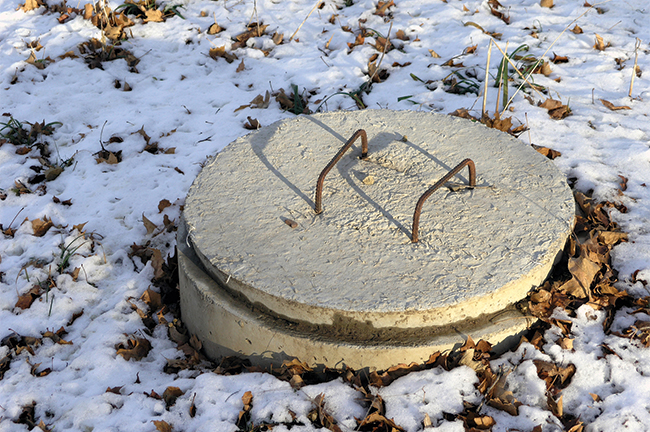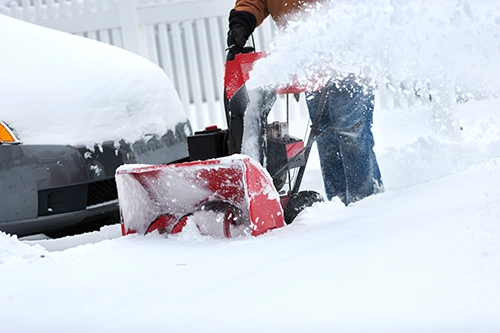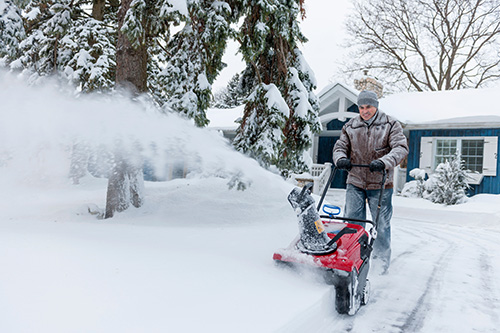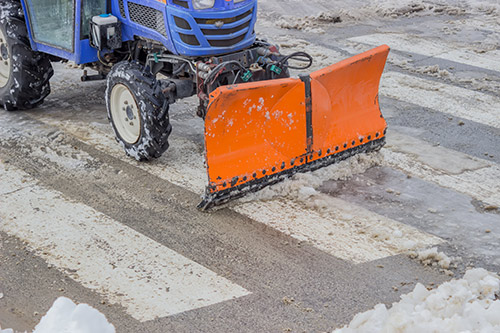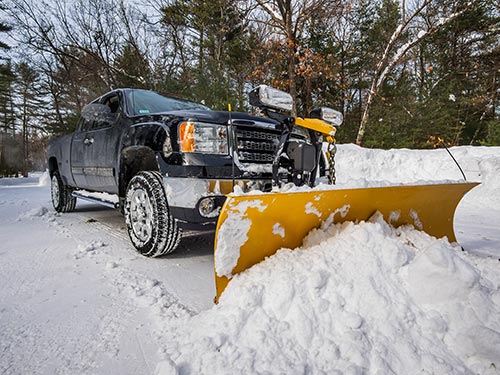
You can hire snow removers for a one-time service, but be prepared to wait in that case. Reliable companies already have extensive client lists, so it’s a good idea to plan ahead and find someone well before the first winter storm hits.
What Should I Look for in a Snow Removal Professional?
Start by contacting companies that neighbors recommend or that have good reviews on a trusted online site. Ask these questions:
- How much snow will trigger service? This is a good question particularly if you only want service when a big storm strikes. Also, tell the company if you have special needs that should give you plowing priority.
- What specific services do you provide? Depending on the forecast, many services are ready to lay down salt or other deicing agents as soon as bad weather is expected. If snow that can’t be handled with deicing is expected, removal companies will plow, haul snow, and shovel sidewalks and other walkways in order to maintain safety.
- What kind of staff and equipment do you use? Most companies employ radio dispatchers in addition to their snow removal specialists. They may also have at their disposal commercial-grade equipment such as skid steers, front-end loaders, snowplows and pushers.
- What is the cost for snow removal, and how is it calculated? The cost varies on the market conditions of a particular area and current fuel costs. If you know you live in an area of the country that is likely to experience a certain amount of snow, you may be able to lock in a reasonable rate because the company will expect a minimum amount of work. On average, you can expect to pay between $350 and $400 for a seasonal snow removal contract, or around $75 for a one-time cleaning.
- Are you covered? Confirm that the company is appropriately licensed for where you live and holds proper bonding and insurance.
What if I Want to do it Myself?
If you plan to shoulder some or all of this seasonal chore, take steps to stay healthy:
- If you don’t already have a snowblower, consider getting one. Otherwise, get a lightweight plastic snow shovel with an ergonomic handle to help distribute the load. Use a shovel with a deep scoop to push snow, not lift it.
- Cold weather restricts blood flow. Before shoveling, warm up by jogging in place and stretching. Also, avoid a big meal or smoking just before shoveling, as either will affect blood flow. Drink fluids so you stay fully hydrated.
- It’s better to repeatedly remove smaller quantities of snow than it is to move large amounts at once. If snow is already deep, remove it in layers.
- As you shovel, keep your back straight, bend at the knees and use the strength in your hips and thighs to lift or push snow. Don’t twist.
Contact Morse Engineering and Construction for more information.
Source: detroitnews.com


